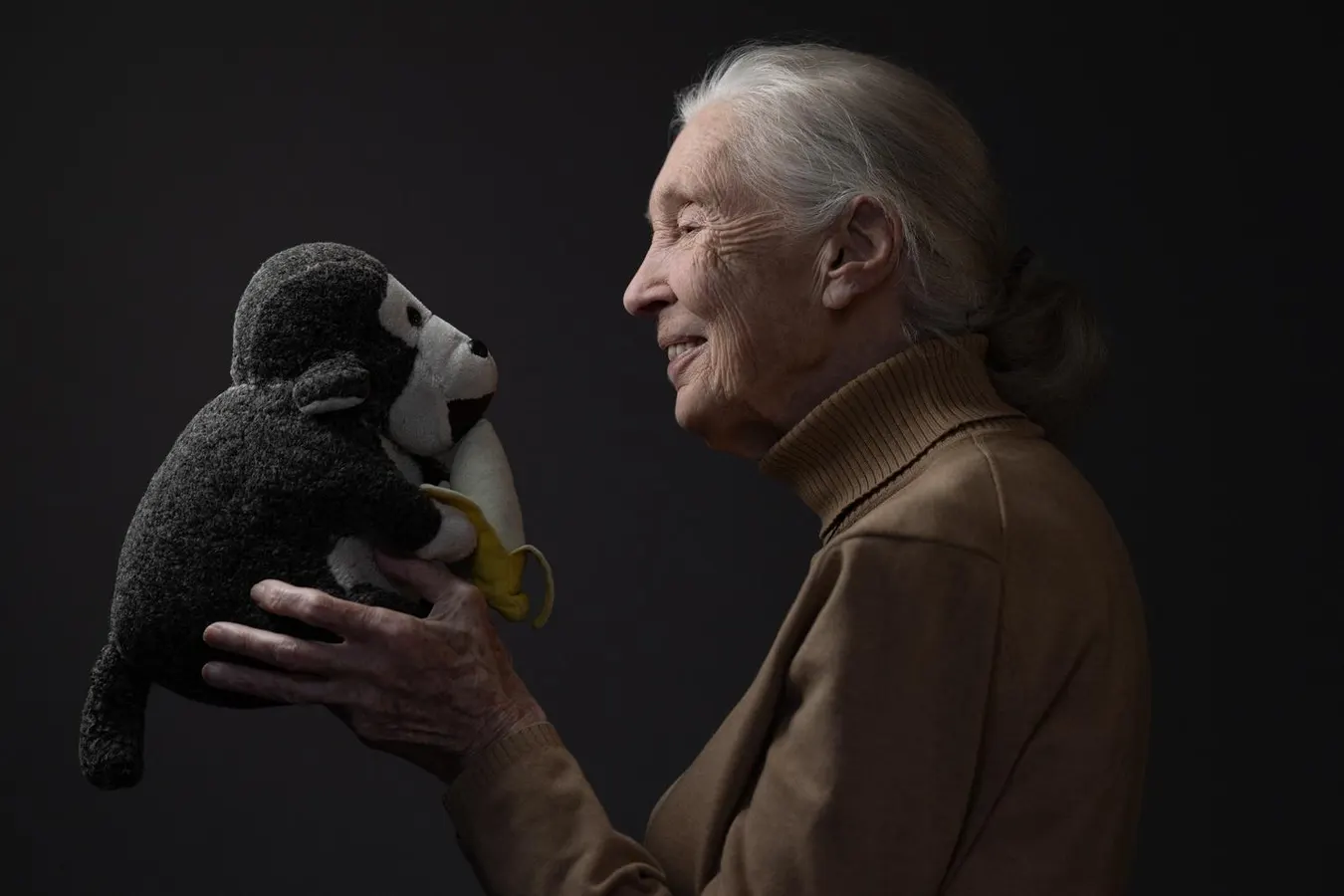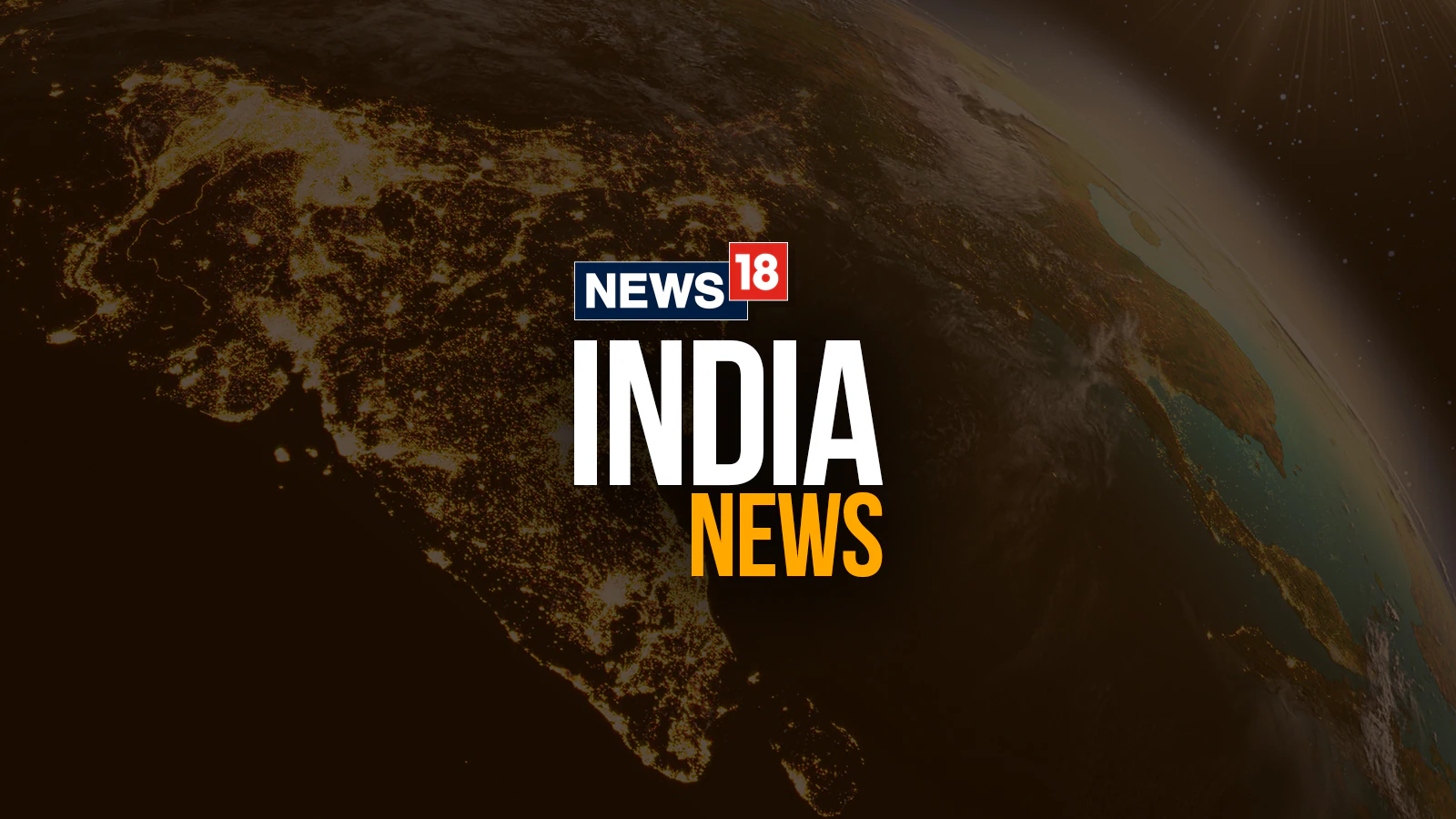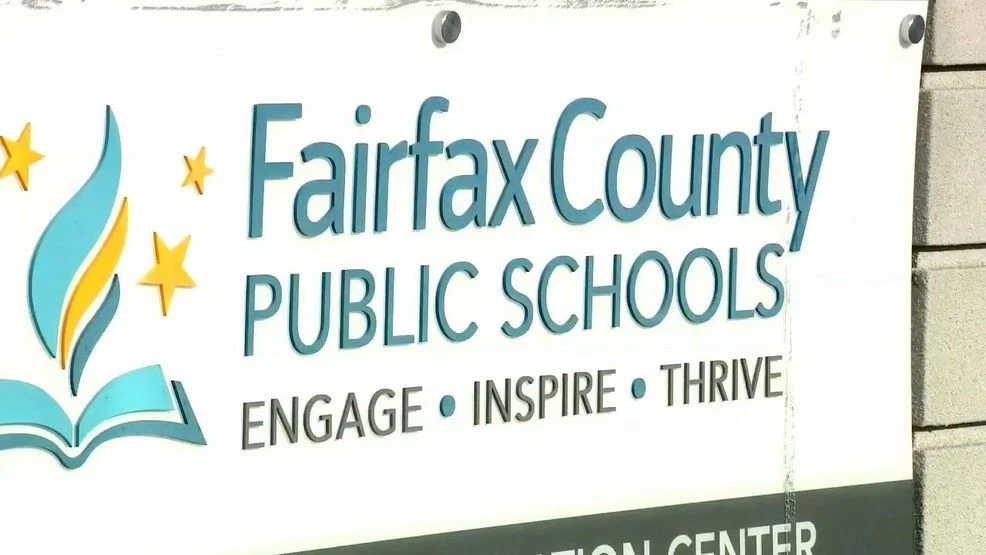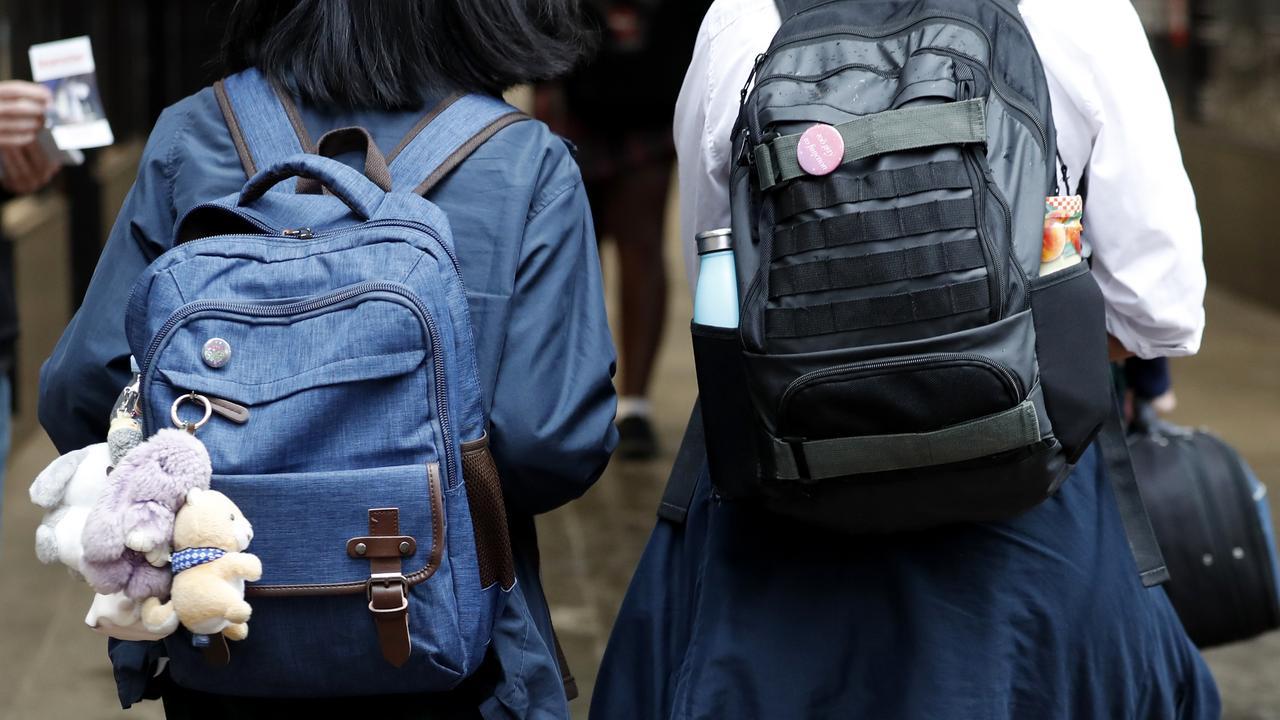By Contributor,Joel Saget,Marianne Schnall
Copyright forbes

TOPSHOT – British ethologist and primatologist Jane Goodall poses with her mascott “Mister H” during a photo session on October 18, 2024 in Paris. (Photo by JOEL SAGET / AFP) (Photo by JOEL SAGET/AFP via Getty Images)
AFP via Getty Images
On Wednesday, October 1, world renowned ethologist, conservationist and humanitarian Dr. Jane Goodall passed away. The 91-year-old beloved global icon and UN Messenger of Peace reportedly died in her sleep in Los Angeles while still doing the work she loved: traveling around the world giving speaking tours to spread her urgent messages on the importance of caring for the Earth and all of its inhabitants.
Dr. Goodall was a legend: a powerful force and influential trailblazer in so many ways, including as a role model for women and girls in science and a pioneer at a time when there were very few women in her field. She was known around the world for her 65-year study of wild chimpanzees in Gombe, Tanzania, which forever transformed our understanding of chimpanzees, animals and the natural world. She went on to expand her focus, becoming a global advocate for human rights, animal welfare, species and environmental protection and many other crucial issues, reminding us of our vital interconnectedness to each other and our fragile planet’s ecosystems.
I had the honor of interviewing Dr. Goodall several times over the course of my career, including an interview in 2020 to commemorate the 60th anniversary of her first setting foot in Gombe, Tanzania, and, more recently, this interview in 2023 about the Apple TV+ series for young people called Jane that she inspired.
Dr. Goodall was always passionate about engaging the next generation. “My greatest hope really lies with youth,” she once told me. She felt that one of her most important legacies—in addition to continuing the important conservation work of the Jane Goodall Institute—was JGI’s youth action program Roots & Shoots, a global environmental and humanitarian program that empowers young people of all ages to become compassionate citizens, gain skills and implement positive change in their local communities through projects that benefit people, animals and the environment. The program is actively driving change in 75 countries and counting around the world.
I once asked Dr. Goodall about the meaning of life. She told me, “We each have this one life gifted to us. I feel that my life is a gift that I want to try to use as wisely as I can, and I want to make use of each of these amazing days that come my way to try and make a bit of difference.” She has certainly made a lasting impact across the globe and in the lives of many people and animals alike.
MORE FOR YOU
In honor of Dr. Goodall’s life and legacy, I’m sharing some of my favorite insights and words of wisdom from my conversations with her over the years—all which resonate with so many timely and pressing issues we now face on this planet. May we all honor her memory by doing something every day to spread compassion and effect positive change. As she reinforced to me in almost every interview, “If we all give up hope and do nothing, then indeed there is no hope. It will be helped by all of us, every one of us, taking action of some sort.”
Following Her Childhood Dream
“I was born loving animals. I had a very supportive mother who didn’t get mad when I was lost for four hours, and she’d actually called the police. I was in the hen house wondering where the egg came out of the hen. I was four years old then. No television. Books were important. I found Dr. Doolittle when I was eight, and then Tarzan and the Apes when I was ten. And that’s the point at which I told everybody I was going to grow up, go to Africa, live with wild animals and write books about them. No thought of being a scientist because that just wasn’t on the table back then. And everybody laughed at me, but not my mother. I mean, World War II was raging, my family had very little money. Africa was far away. It was filled with dangerous animals; we didn’t know anything about it. And anyway, I was ‘just a girl.’ But my mother said, ‘If you really want to do something like this, you’re going to have to work really hard, take advantage of every opportunity, and if you don’t give up, hopefully you’ll find a way.’ That’s the message I’ve taken to young people all around the world, particularly in disadvantaged communities. And I wish mom was around to know how many people have said to me, ‘Thank you, Jane. You taught me that because you did it, you followed your dream, I can do it too.’”
The Power and Potential of Younger Generations
“My greatest hope really lies with youth. I started Roots & Shoots back in 1991 in Tanzania with 12 high school students. The message: every one of us makes an impact on the planet every day; choose wisely, choose ethically. Every group choosing three projects: one to help people, one to help animals, one to help the environment. And that program has got hundreds of thousands of members from kindergarten through university, and they are influencing their parents and grandparents. This program lets them choose their projects, and once they know the problems, they are empowered to take action. We listen to them, their ideas, their voices, and they’re changing the world. As we speak, they’re changing the world.
There is not much you can do singly, but if we can involve young people, especially ages 18 through 24, going out in the world as the next politicians, the next lawyers, the next doctors, the next teachers, the next parents, then perhaps we get a critical mass of youth that has a different kind of values.
For me, Roots & Shoots is the most important thing because everything else ties in with it: they will grow up to protect the environment; they will grow up to be kind to animals and to people.”
Protect the Planet and Our Future
“As we destroy the environment, mother nature is actually screaming for help now. And as we continue to destroy nature, we’re destroying the future of our children, let alone the health of the planet. There’s [a saying] which irritates me every time I hear it, it’s, ‘We haven’t inherited this world from our parents, we’ve borrowed it from our children.’ When you borrow, you pay back, right? Or you should do that. We have been stealing and stealing and stealing from our children. And now it’s about time we started to get together and involve our hearts and pay back.”
Take Action In Your Community
“One thing we’re hearing all the time is, ‘Think globally, act locally.’ But turn it around, because, quite honestly, if you read the newspapers or watch the news around the world, you can’t help but feel depressed. There’s an awful lot of really bad things happening politically, socially and environmentally. But instead of just feeling helpless and hopeless, say, ‘I’m here and now, in this place. There’s a dirty stream. I can get together with my friends. We can clean that stream up.’
Do the projects that you can do locally. You can go and volunteer in a shelter. You can volunteer in a soup kitchen. You can raise money to help the children. There’s an awful lot of things that we can do locally, and it makes you feel good. You’ve succeeded in something, you’ve done something, you can see the results of it. And then when you know that there are other people just like you doing the same thing, then what you’re doing is multiplied and multiplied and multiplied, and changing the world. And then you have hope.”
Women’s Progress and Gender Equality
“I have seen enormous change [around gender equality] in the developed countries. In Tanzania, for example, we’re providing as many scholarships as we can to keep girls in school; other organizations are doing the same. And women are staying for secondary education, some going to university. So it really has changed a lot. There are women in high up places in government, and in other countries, it’s beginning to be more equitable. This Indigenous person from Latin America, it was a chief, he told me his tribe was like an eagle. He said, ‘One wing is male and the other wing is female, and only when they’re equal will the tribe fly high.’ And I love that. That’s what we should aim for: equality.”
The Importance of Spending Time in Nature
“We’ve lost touch, particularly today because so many people live in a virtual world. They’re not spending time out in nature. When I was a child, there wasn’t even television, let alone computers and cell phones. I spent all my time outside watching the birds and the squirrels and the other animals, the insects. And today kids are on their cell phones. It’s tragic because it’s been scientifically proven that nature—green, singing birds, leaves, flowers—is essential for really good psychological development for young children. This is what we desperately try to do: get children into nature. It’s all very well to say, ‘They can look at TV and see the wonders of nature.’ Yes, they can and it’s great, but there’s nothing like a tiny child actually putting their hands in the earth and picking up an earthworm to marvel at how it moves around without any legs. Children have this natural curiosity if they’re allowed to be in nature.
And it’s been also proven that if you start ‘greening’ a very disadvantaged area of a city where there are high crime rates, as you put in trees and shrubs and flowers, and birds come back, crime rates drop. So it’s just very tragic that we’ve gotten so isolated in our little bubble of making money and we’ve stopped thinking about our relationship to the natural world. And yet we can’t. We’re part of it. We depend upon it.”
Redefining Success
“We need to shift toward actually enjoying nature and birdsong and get off our little machines and see what’s going on. Even watching people—it’s fascinating to me, but nobody else is looking. They’re missing little gems, of people greeting and crying and all sorts of things.
I think we need a new definition of success. At the moment it’s power and money, but we don’t need all that money to have a life where you can enjoy your family, you have enough to eat, you can go on a holiday, you can be in nature if you want. Some of these people who are obsessed with rising up in this success, power and money, they’re not happy, they’re stressed. They’re all the time stressed. I want people to be happy. You go to a very poor village in Africa and somebody from the West would say, ‘Oh, these poor people, we’ve really got to bring them into the modern world.’ Go there—they’re laughing, they’re singing, they’re having fun, they’re happy.”
We Should Always Have Hope
“I feel hopeful because of the energy and commitment of young people and the resilience of nature. Animal species on the brink of extinction have been brought back. And we are beginning to use our brain for things like renewable energy and all these other things, plus people who tackle the impossible and don’t give up and so often succeed.
People should never give up—there is always hope. The natural world is in a real crisis situation, but all around the planet there are extraordinary people who are absolutely determined that certain animal species or plants or ecosystems shall be helped to restore themselves. If we all give up hope and do nothing, well then indeed there is no hope. It will be helped by all of us, every one of us taking action of some sort.”
“The two things I really am hopeful that will be thought of as my legacy: One is starting Roots & Shoots because that is changing lives. And the other is helping people, including scientists, to admit that we’re part of the animal kingdom, so that we look at animals in a different way and treat them more humanely, more compassionately. Those two things.
And the most important message is: remember that every single day, every single one of us makes an impact on the planet.”
Her Call to Action
“Think about what you do every day and make ethical, compassionate choices in what you eat, what you buy, what you wear. And just realize that it’s not you alone—together, collectively, we are making a difference. And there is a window of time, but we’ve got to get together and take action now.”
To learn more about and support Dr. Goodall’s work, visit the Jane Goodall Institute and Roots & Shoots.
Editorial StandardsReprints & Permissions



